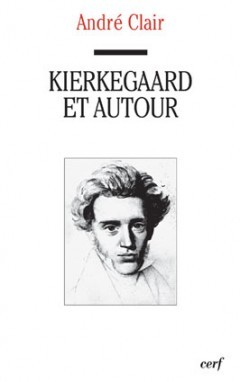A l'occasion du 150e anniversaire de la mort de Søren Aabye Kierkegaard (1813-1855), cette série d'études proposée par le philosophe français André Clair contribue à situer ce penseur danois dans le réseau moderne des philosophies de l'existence. Penseur singulier, mais nullement isolé, Kierkegaard y est ainsi mis en perspective avec d'autres philosophes (de Descartes à Lévinas). Si l'interrogation éthique est privilégiée, les autres aspects d'une œuvre complexe mais unifiée sont également bien présents. De même que les précédents livres d'André Clair sur Kierkegaard, celui-ci se situe dans le contexte des débats internationaux, en insistant toujours à la fois sur l'unité de l'œuvre et sur la singularité de chaque écrit. André Clair poursuit son entreprise philosophique de lecture de grands textes, dans le but notamment de mettre en lumière la manière dont la dimension déontologique de l'éthique doit être rapportée aux enracinements et aux traditions dans lesquels s'inscrivent les fins que poursuit un sujet éthique. -- On the 150th anniversary of the death of Søren Aabye Kierkegaard (1813-1855), this series of studies from the French philosopher André Clair helps to situate the Danish thinker in the ensemble of modern philosophies of existence. Kierkegaard's unique but not isolated thinking is placed alongside that of other philosophers (from Descartes to Lévinas). Although the author focuses on ethics, other aspects of Kierkegaard's complex but unified work are also present. Like André Clair's previous books on Kierkegaard, this volume is placed in the context of international debates, always insisting on both the unity of the whole work and the uniqueness of each part. André Clair continues his philosophical task of reading great texts with the special aim of demonstrating how the deontological dimension of ethics must be in keeping with the roots and the traditions in which the finality of an ethical subject is inscribed.




